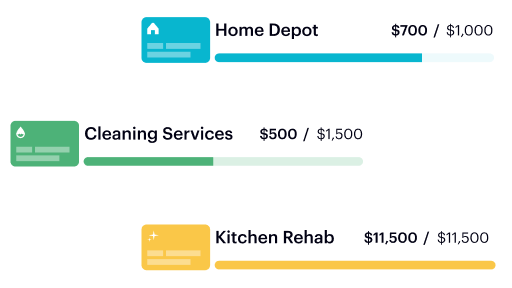With the Covid-19 pandemic mostly behind us, time has run out on most of the temporary relief programs for renters. As your safety nets disappear, you might have found an ugly piece of paper in their place – an eviction notice.
The eviction process varies from state to state, but the consequences are universal. Having an eviction on your record makes it much harder to find a new home, and being ordered to pay back rent can devastate your finances and credit score.
If you’re facing eviction in 2022, here’s what you need to know.
1. What is Eviction?
Eviction is the act of a landlord terminating a lease and removing a tenant from their rental property.
Most commonly, eviction results from a legal process pursued by the landlord. Your landlord may apply to evict you for failing to pay rent, conducting illegal activity, or refusing to comply with a provision of the lease. If you don’t comply with an eviction order, your landlord may apply to the local sheriff’s office to have you forcefully removed from the property.
Sometimes, however, you can be evicted for reasons that are no fault of your own. Landlords can choose not to renew the lease at the end of a term or evict you to allow a family member to use the home. Your landlord can also evict you to conduct major renovations on your unit, an ugly occurrence cheerfully referred to as “renoviction.”
Occasionally, a landlord may attempt to evict you in bad faith by abusing the legal process or ignoring it altogether. Bad-faith evictions can be constructive, where your landlord tries to force you out by making the home unlivable, or retaliatory, where your landlord tries to evict you as revenge for enforcing your rights.
Landlords also sometimes employ a tactic known as “cash for keys” to get rid of tenants. In this scenario, your landlord would offer you money in exchange for agreeing to end your lease early.
2. How Does Eviction Affect My Credit Score?
If you’re evicted for falling behind on rent, it can be extremely damaging to your FICO score. While most landlords don’t report missed rent payments to the credit bureaus, your eviction could still show up on your credit report in one of two ways:
- Being evicted doesn’t excuse you from paying past-due rent. If your landlord hires a collection agency to collect, they can report your account to the credit bureaus.
- If your landlord successfully sues you for damages, the judgment can appear on your credit report and negatively affect your score.
- Larger landlords are most definitely registered with the top three credit bureaus and will report you (they don’t need a collection agency’s help to do that).
3. How Long Will an Eviction Stay on My Record?
Even if your eviction doesn’t appear on your credit report, it can still severely harm your ability to find a new home. Legal evictions are public record and can easily be discovered during future rental applications.
While many sources cite seven years as the length of time an eviction stays on your record, that’s only half the story. Court records are maintained at a county level and can be accessible for a long time, depending on local laws. In California, eviction orders are kept on record for at least a year, but monetary judgments are kept for 10 years. In New York State, all civil case records are kept for 25 years.
While most landlords do not have time or resources to search county court records, they rely on credit bureaus and tenant screening companies that aggregate eviction data. Under the Fair Credit Reporting Act, these companies can report your eviction history for seven years.
4. Can I Be Evicted During Covid?
While the CDC and many states put evictions on hold during the Covid-19 pandemic, no federal- or state-level eviction bans remain in force as of July 2022. Except in a handful of cities where evictions are still prohibited under local laws, you can be evicted at any time.
The only Covid-related saving grace left for tenants is that many courts are still dealing with a backlog of eviction cases. One example is New York’s housing court, which is still working through the backlog of over 200,000 cases filed during the pandemic as of July 2022.
5. How Can I Prepare if I am Being Evicted?
Eviction is an unpleasant process that nobody wants to go through – including your landlord. If you’ve been given an eviction notice, take these steps to prepare:
Negotiate with your landlord
You may be able to reach an agreement with your landlord to keep your case out of the courts. They’ll be happy to expedite the process, and you’ll be happy to keep the eviction off your record. Not to mention all the stress you’ll incur with dealing with courts.
Take a hard look at your budget
If you’re being evicted for nonpayment of rent, you need to make changes to afford a home. If debt is a problem, there are many free local rent assistance or eviction prevention services that can help you get things under control.
Look for a new place to live
You may need to make concessions to live more within your means. Consider renting a more affordable home, sharing with roommates, or living with family. It’s a good idea to start looking early as it may take longer to find a home while you’re fighting an eviction.
Seek legal advice
Eviction is a legal process, and you have rights under federal, state, and local laws. Most major cities have public or non-profit programs that can help you navigate the eviction process if you can’t afford a lawyer.
The bottom line
Being evicted is unpleasant, and it has serious consequences. An eviction can show up on your credit report or a tenant screening report for up to seven years, and court records can persist even longer, making it very difficult to find a home in the future.
With no protection for renters remaining after Covid-19, you can be evicted if you fall behind on rent. If your landlord has given you notice, seek legal advice, and try to negotiate a deal with your landlord that keeps your eviction off the public record.
Read More:
FAQs
The eviction process varies by state, but in most cases, you’re not required to move out until the court has ordered your eviction. Once a final notice to vacate the property has been given, you will usually have 7-14 days to move out before your landlord can ask the sheriff's office to have you forcibly removed.
Your landlord giving you an eviction notice is the first step in a long legal process. In many cases, remedying the problem (i.e., paying past-due rent in full) is enough to stop you from being evicted. If that’s not possible, seek legal advice on how to defend yourself.
Looking for a new rental is easier than fighting an eviction notice, but it’s not always feasible to just find another place to live. The eviction process is there to protect your rights, and you may be able to delay or avoid eviction by following it.






